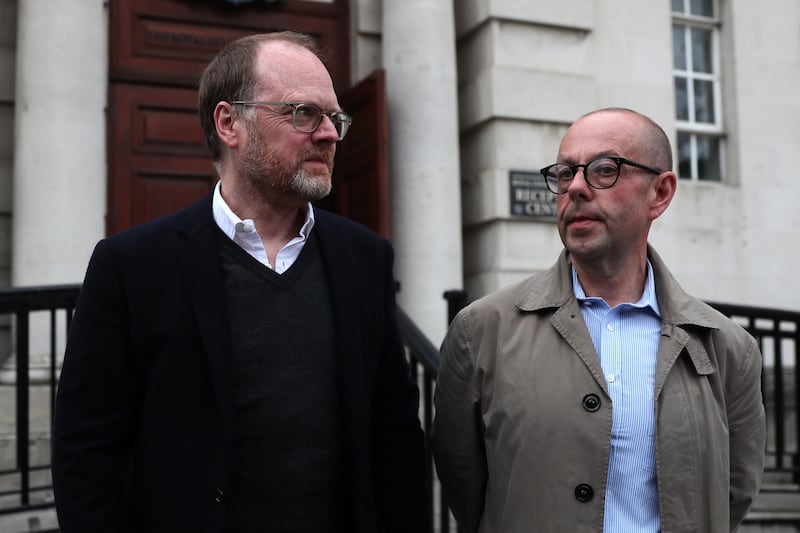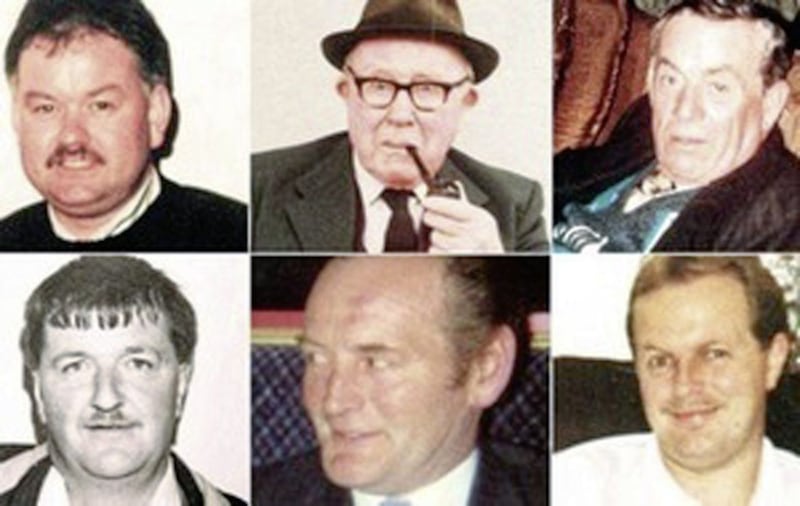A report into PSNI surveillance of journalists has identified up to 18 incidents involving members of the media and legal profession, it has emerged.
The controversial snooping report was presented to members of the Policing Board last week, six months after it was first requested.
The report, which has been criticised by board members and been branded “vague”, will not be made public.
It is understood it confirms there are fewer than 10 incidents relating to journalists and the same again for lawyers - meaning there could potentially be up to nine incidents involving members of each profession.
The report was requested by the Policing Board last year after it emerged that two journalists – Barry McCaffrey, a former Irish News reporter, and Trevor Birney – had been placed under surveillance.
Their case is being considered by the powerful Independent Powers Tribunal (IPT) in London.
The IPT examines complaints from people who believe they have been the victim of unlawful interference by public authorities, using covert techniques, including the PSNI.
As concerns grow over the spy scandal, the Policing Board’s human rights adviser has been given access to PSNI material linked to last week’s report.
Chief Constable Jon Boutcher has also committed to the production of a second report, which will be made public.
Human rights groups Amnesty international and Committee on the Administration of Justice have voiced concerns about the surveillance of journalists.

Patrick Corrigan, Amnesty International’s director in the north, said a “free press and an independent legal system are cornerstones of any democracy”.
“It’s chilling that the police have apparently been conducting covert and intrusive surveillance on lawyers as well as journalists in Northern Ireland,” he said.
“We already knew about three incidents of police surveillance of journalists, but this new information seems to confirm our fears that these incidents are part of a wider pattern of the police abusing their powers on secret surveillance.
“We continue to call on the Policing Board to hold an inquiry into potentially unlawful use of covert surveillance. It’s time for full transparency, scrutiny and accountability.”
Daniel Holder, CAJ director, said “police spying on lawyers and journalists is often associated with undemocratic regimes – it requires compelling justification”.
“Revelations of police spying on lawyers raises questions as to whether there has been interference in the administration of justice,” he said.
“The proper functioning of the legal system is reliant on confidentiality of legal communications between lawyers and clients.”
In February the IPT was told that police mounted a covert surveillance operation after the arrest Mr McCaffrey and Mr Birney in an attempt to identify one of their sources.

Details emerged after Mr McCaffrey and Mr Birney made a complaint to the IPT in 2019 over their arrest the previous year in connection with an acclaimed 2017 documentary about the UVF sectarian murder of six men at the Heights Bar in Loughinisland, Co Down, in June 1994.
The tribunal also heard that the arrest of the journalists in 2018 was a “disruptive” tactic to see if they contacted their source on release from police custody.
The PSNI later unreservedly apologised for how the men had been treated and agreed to pay £875,000 in damages to them and the film company.
The tribunal has also heard that as part of the 2018 investigation, the PSNI “re-interrogated” phone data it requested from the Metropolitan Police relating to Mr McCaffrey.
That data was obtained by the London based police force in 2011 in another investigation, also aimed at revealing a source.
Before February’s hearing the IPT had been set to examine allegations that the PSNI unlawfully accessed Mr McCaffrey’s phone records in 2013 as part of an unrelated probe into allegations of police corruption.
The Law Society declined to comment.
The PSNI said the chief constable was required to co-operate with the Investigatory Powers Commissioner’s Office (IPCO).
“The chief constable will continue to work closely with the Northern Ireland Policing Board and their human rights legal advisor to assist the board in assessing any relevant findings of IPCO and any determinations by the related Investigatory Powers Tribunal,” a spokesperson said.







